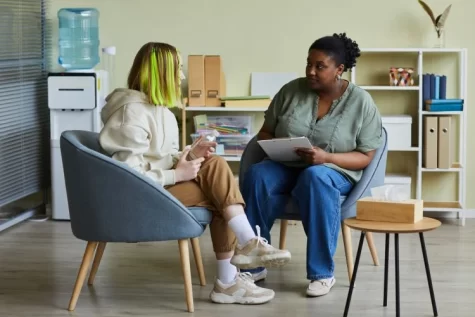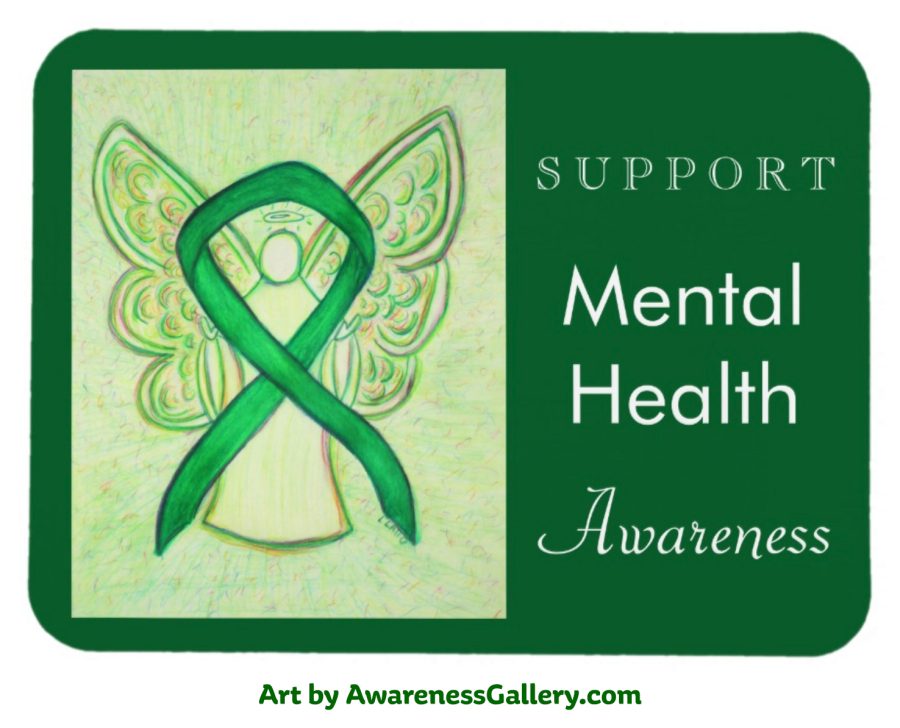Sad Generation, With Happy Pictures
I’m sure you have heard of common mental health issues such as Anxiety, Depression, Bipolar Disorder, PTSD, and many more. Those who experience them on a day-to-day basis look like regular ordinary people like you and me. Let’s meet some of them. For this article I will be interviewing 3 people. First, we will start with Sally Adams a freshman at HHS. (Sally has chosen not to reveal her identity. We have given her a cover-up name with her blessing.)
Her mental health journey began the year before last when she started to realize she may be suffering from a mental illness as a friend had told her she, too, was struggling. I too remember that was the same case for me as well. Sally says it took her a while to notice because she is such an overthinker. Sally used her sister and friends as resources for help and advice on her next move to get evaluated. Unfortunately, it didn’t shock me that she didn’t mention her parental figures. In my experience, the ones struggling behind the scenes often do not speak of their mental health to a parent. I, too, took a while to explain to my parents I was unwell in fear of getting the common phrase “you’re just jumping on with the trend.” “It’s what you eat.” “You’ll be fine.” These phrases are detrimental to those truly in need of help.
With such circumstances, we have been named the “Sad Generation, with Happy Pictures.” (Stefan Marx a visual artist). According to (https://online.sbu.edu/news/gen-z-mental-health)
“Gen Z is significantly more likely (27 percent) than other generations, including millennials (15

percent) and Gen Xers (13 percent), to report their mental health as fair or poor.” (SBU)
These statistics show the high percentage of Gen Z mental health issues, versus previous generations. Unfortunately, this isn’t a complete shock to me because in observing the number of children in my generation it seems almost everyone, if not most, have a mental disorder.
Next, I interviewed Emma Lovell an HHS sophomore. Emma remembers in her later elementary days having issues with her mental health. Emma started attending therapy regularly to help her along the way to get where she is today. Lovell states she wishes then she could tell herself: “One thing I tell myself from years ago is that I’ve just got to accept everything and stand up for myself. As a kid I was searching for attention or let people walk all over me and I can now see how much I’ve changed overtime.” I enjoyed speaking with Emma as a friend and someone I consider looking up to because of her wisdom surrounding mental health disorders. I always enjoy speaking with her.
Finally, I interviewed Jesse Tiralla, a Calvert County Health Center social worker. Jesse says he comes

from a background of a family working in the medical field. Jesse’s goal is to help people and deliver a sense of purpose. I think to myself that we need more people wanting to do more for others even when times are stressful. I feel Health Workers especially mental health workers are not greatly appreciated as human beings as well. According to Jesse an overlooked or misunderstood thing often that pops up is trauma-based conditions. Although nowadays more people are beginning to seek help for trauma, it wasn’t long ago when it was taboo. Often, I feel most people don’t even recognize the trauma in themselves unless it is pointed out by others and the dots are connected. Tiralla goes on to state “Some of my clients are adolescents, but not most, and that’s a tough question! I’m not sure that I have an answer. One thing that I have noticed is that many adolescents that I work with seem to feel a sense of being more disconnected from others at times, which can be a pretty painful experience. It would be hard to point to a specific, common cause for this, but one thing that may contribute is our increasing reliance on technology for human interaction, with things like social media.” Agreeing with every single word I do find that technology does play a role in the mental health of adolescents because all around us is technology. Computers, phones, tablets, smartwatches, etc. It is almost impossible to escape from the everyday new trends or the number of likes a peer has.
Some resources for those in need of help are:
- Coping skills (going outside, yoga, exercising, meditation and so many more) 443-771-0077 Calvert County Health Dept.
- FOR IMMEDIATE ASSISTANCE WITH BEHAVIORAL HEALTH NEEDS (SUBSTANCE MISUSE/MENTAL HEALTH), CALL OUR 24/7 CALVERT CRISIS RESPONSE HOTLINE AT 1-877-467-5628
- Call 988 a national suicidal prevention hotline or call 911 for emergency cases.
Remember you will never be the only one experiencing how you feel. It may feel as if you walk a lonely road and no one notices, but the best thing to do is to advocate for yourself because mental health is a scar on the inside – something you cannot see. How will anyone know to help if you don’t speak up? I often think to myself when feeling low and alone “you’re never alone.” This is Lexi Bennett an HHS senior who has and does struggle with their mental illnesses closing out. Have a great day! And spread the word!!





